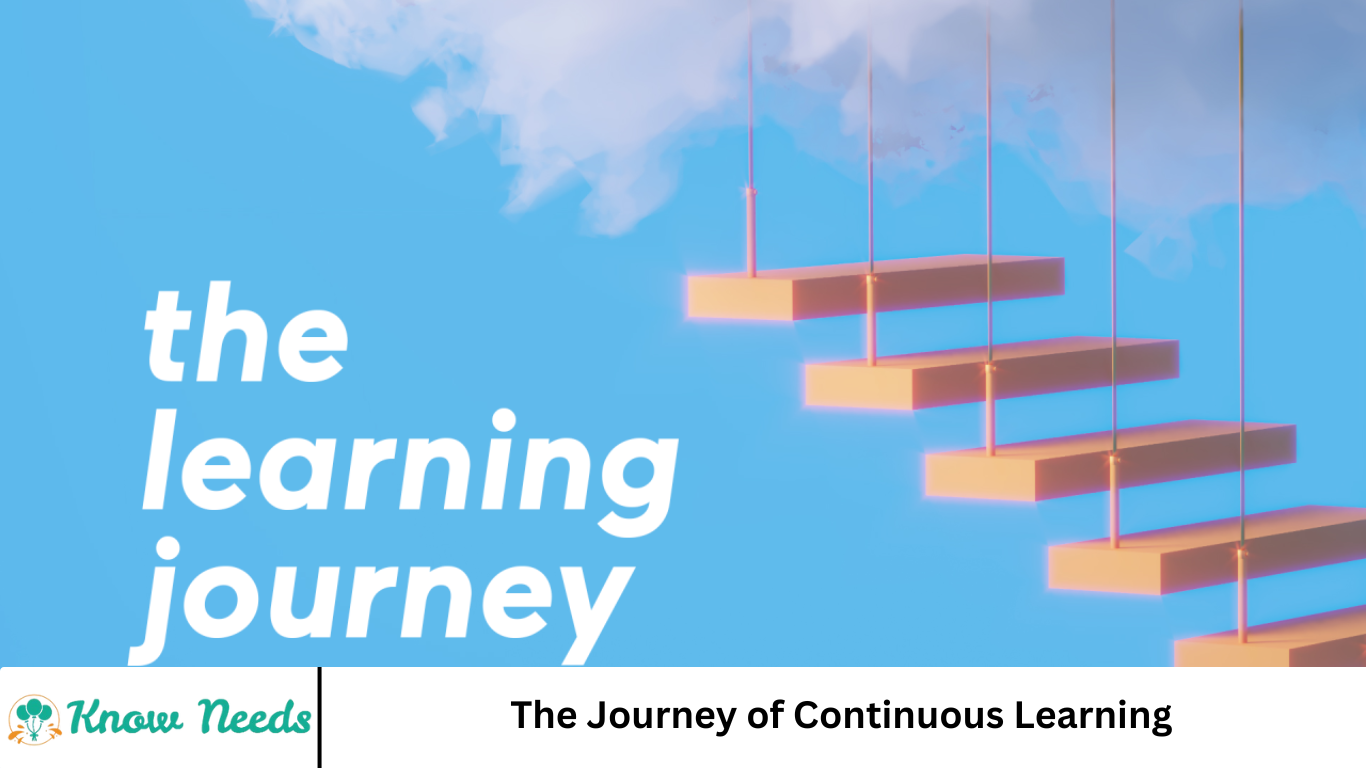In a world that never stops changing, continuous learning has become essential. Whether you want to advance your career, stay relevant in a shifting job market, or simply expand your horizons, embracing lifelong learning is key.
This article explores why continuous learning matters, how to adopt it in daily life, and practical strategies to maintain a lifelong learning journey.
More Read: Top 24 Online Courses to Take in 2025: Key Benefits and How to Choose
What Is Continuous Learning? <a name=”what-is-continuous-learning”></a>
Continuous learning—sometimes called lifelong learning or ongoing education—is the deliberate, voluntary pursuit of knowledge, skills, and abilities beyond formal classroom settings. It’s not limited by age, career stage, or academic credentials. Instead, it’s a mindset and practice that spans:
- Formal education, such as degree programs or certification courses.
- Informal learning, including self-study, reading articles, watching tutorials, or attending workshops.
- Experiential learning, like hands-on projects, volunteering, or simulations.
The hallmark of continuous learning is that it is self-directed and purposeful. This journey is driven by curiosity, passion, and a desire for improvement—not imposed by external mandates.
SEO highlight: Use key phrase variations like “lifelong learning benefits,” “continuous education tactics,” and “ongoing personal development.”
Benefits of Lifelong Learning <a name=”benefits”></a>
Embedding continuous learning into your routine delivers powerful advantages:
🚀Career Growth & Employability
- Adapt quicker to industry changes and new technologies
- Increase competitiveness in job markets
- Access promotions and higher earning potential
🌱Personal Development & Fulfillment
- Boost confidence through new abilities
- Deepen interests in hobbies, languages, art, or science
- Find greater satisfaction and avoid stagnation
🧠Enhanced Cognitive Function
- Promote mental agility and creativity
- Strengthen memory and problem-solving skills
- Reduce risk of cognitive decline with age
🌍Social & Cultural Benefits
- Expand your network and meet like-minded learners
- Gain appreciation for diverse cultures and viewpoints
- Foster empathy and collaborative skills
Types of Continuous Learning <a name=”types”></a>
Learning isn’t limited to textbooks. Below are the primary channels for ongoing education:
Formal Learning
- University degrees
- Professional certificates and licenses
- Structured online programs (e.g., MOOCs)
Informal Learning
- Reading books, articles, research papers
- Watching instructional videos, podcasts
- Browsing blogs, forums, community groups
Social and Experiential Learning
- Mentoring relationships, peer-to-peer groups
- Hands-on projects, internships, volunteering
- Hackathons, workshops, collaborative environments
Self-Directed Learning
- Setting personal learning objectives
- Tracking progress independently
- Choosing cadence, methods, and materials that match your learning style
Mindset for Lifelong Learners <a name=”mindset”></a>
Your mindset shapes your learning path. Cultivating the right attitudes is essential.
✅Growth Mindset
Carol Dweck’s theory emphasizes effort and improvement over innate talent. Embrace challenges and learn from setbacks.
✅Curiosity & Open-Mindedness
- Ask questions, research answers
- Welcome new ideas and feedback
- Be adaptable in a changing world
✅Resilience & Grit
- Persist through frustration
- Accept failure as a stepping stone
- Focus on long-term growth
✅Discipline & Self-Motivation
- Stay consistent even when motivation dips
- Structure a learning routine
- Hold yourself accountable
How to Begin Your Learning Journey <a name=”how-to-begin”></a>
Set Specific Goals
- “Learn conversational Spanish in six months” is better than “learn a language.”
- Tailor goals to personal interests and professional aspirations.
Conduct a Skills Assessment
- What skills do you already have?
- What skills do you need next?
- Use frameworks like SWOT to analyze strengths and gaps.
Choose Learning Formats
- Structured courses for discipline
- Informal reading/videos for flexibility
- Hands-on experiences for practical mastery
Develop a Learning Plan
- Sketch a roadmap (e.g., 30-minute daily sessions)
- Define milestones (e.g., complete Course X by July)
- Track progress using tools and journals
Tools & Resources for Continuous Learning <a name=”tools-resources”></a>
Here’s a curated list of top resources to support your journey:
| Resource Type | Examples |
|---|---|
| Online Courses | Coursera, edX, Udemy, LinkedIn Learning |
| Books & eBooks | Amazon Kindle, Project Gutenberg, Blinkist |
| Podcasts & Videos | TED Talks, YouTube educational channels, niche podcasts |
| Communities & Forums | Reddit learning subreddits, Facebook Groups, specialized Slack teams |
| Mentoring/Peer Learning | Local meetups, Toastmasters, Learn by sharing |
Building a Habit of Learning <a name=”building-habit”></a>
Consistency wins. Here’s how to create habits that stick:
🧭Start Small (Micro-Learning)
- 10–15 minutes daily is more effective than binge sessions
- Use commuting time, short breaks, or waiting periods
🏁Schedule Learning Time
- Block sessions in your calendar
- Treat learning sessions with the same importance as meetings
🔁Join Accountability Groups
- Study or discussion buddies boost commitment
- Share wins and challenges
✅ Track and Reward Progress
- Use habit trackers or spreadsheets
- Celebrate small victories to maintain motivation
🧱Make It Practical
- Build projects that apply what you learn
- Write articles, teach others, share on forums
Real‑Life Examples & Success Stories <a name=”examples”></a>
💼 Professional Growth
A mid‑career marketer learns Python, transitions to data analytics, and lands a six‑figure job. Her continuous learning paid off.
📚Personal Passion
A retiree takes online art classes, starts a watercolor blog, and later exhibits paintings in local galleries—fulfilling long-held ambitions.
🔧Career Switch
An engineer studies UX design through bootcamps and mentorship, then switches to product design—tripling job satisfaction.
🎙️Peer Learning Impact
A local meetup group meets weekly to learn Django development. Several members launched startups based on their skills.
Overcoming Challenges in Continuous Learning <a name=”challenges”></a>
Even dedicated learners face obstacles:
🕰️Time Constraints
- Integrate learning into routine
- Use micro-learning techniques
🤯Overwhelm and Scope
- Break complex goals into manageable tasks
- Focus on mastery of one concept at a time
💸Cost of Education
- Use free or low-cost platforms
- Rely on open-source tools, community workshops
🏁Loss of Motivation
- Revisit goals and connect to purpose
- Mix subjects to maintain passion
- Shift formats (video, reading, projects)
🧑🤝🧑Lack of Support or Collaboration
- Join local clubs, online communities
- Find mentors, study partners, or professional networks
Measuring Progress & Success <a name=”measuring”></a>
Tracking growth matters:
📌Define Clear Metrics
- Language fluency: CEFR levels
- Coding proficiency: number of projects or GitHub commits
📌Use Digital Tools
- Habit trackers (e.g., Notion, Trello)
- Time logs, weekly/monthly reviews
📌Showcase Achievements
- Certificates (Coursera, edX)
- Portfolios, projects, blogs, public talks
📌Feedback & Assessment
- Quizzes, code reviews, mentor evaluations
- User comments or peer assessment
Continuous Learning Across All Ages <a name=”all-ages”></a>
Learning never ends:
👶Children & Teens
- Curiosity-driven exploration
- STEM clubs, art, languages
🧑College Students
- Explore interests beyond core courses
- Build real-world projects, internships
🧑🤝🧑Professionals
- Stay skill-relevant
- Attend conferences, masterclasses, micro-credentials
👵 Seniors
- Pursue passions—history, creative writing, etc.
- Maintain mental agility, socialize, and avoid isolation
Frequently Asked Question
What is continuous learning and why is it important?
Answer: Continuous learning refers to the ongoing, voluntary, and self-motivated pursuit of knowledge and skills for personal or professional development. It’s important because it helps individuals stay relevant in a rapidly changing world, adapt to new challenges, improve cognitive function, and achieve long-term goals.
How can I start my continuous learning journey?
Answer: Start by identifying a topic or skill you’re passionate about. Set clear, achievable goals, choose suitable learning resources (like books, online courses, or podcasts), and create a consistent learning schedule. Begin small—just 15–30 minutes a day can make a big difference.
What are the best resources for lifelong learning?
Answer: Great resources include platforms like Coursera, edX, LinkedIn Learning, and Udemy for formal courses. For informal learning, try TED Talks, YouTube channels, podcasts, blogs, and forums like Reddit. Libraries, community centers, and online groups also offer valuable learning opportunities.
Can continuous learning help with career advancement?
Answer: Absolutely. Continuous learning boosts your skill set, keeps you competitive, and often leads to promotions or career shifts. Employers value adaptable professionals who proactively improve themselves and stay current in their fields.
How do I stay motivated to keep learning over time?
Answer: Set personal goals tied to your passions, break big goals into smaller milestones, celebrate progress, and mix up your learning formats to keep it engaging. Joining a learning group or having an accountability partner can also help sustain momentum.
Is continuous learning only for professionals?
Answer: No, it’s for everyone—students, professionals, retirees, and even children. Whether you’re learning a language, a musical instrument, coding, or gardening, continuous learning enhances personal fulfillment and mental sharpness at any age.
What are common obstacles to lifelong learning, and how can I overcome them?
Answer: Common obstacles include lack of time, motivation, or access to resources. You can overcome these by scheduling short, regular learning sessions, choosing topics that genuinely interest you, using free or low-cost tools, and joining supportive communities to stay engaged.
Conclusion
The journey of continuous learning is more than a strategy—it’s a mindset and a lifestyle. In a fast-paced, ever-evolving world, the ability to learn, unlearn, and relearn is one of the most valuable skills you can possess. Whether you’re pursuing professional advancement, personal enrichment, or cognitive growth, embracing lifelong learning empowers you to stay curious, adaptable, and resilient. You don’t need to commit to major life changes to begin. Start small. Choose one topic, set a realistic goal, and commit to learning just a little each day. Over time, those small efforts compound into meaningful transformation.


